Welcome to my blog
Grow & Scale A Business That Will Set You Free
Really?
When you’re looking for a doctor, lawyer, accountant, coach, psychologist, realtor, mentor, consultant, advisor, who’s the real deal?
And when you’re competing in the marketplace of services and ideas, how do you differentiate yourself, how do you stand out? 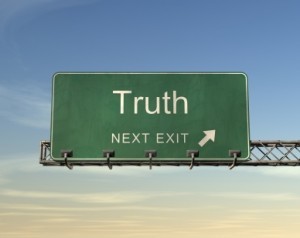
Who can you rely on? Who can you trust?
How do you know what’s real, what’s authentic, what’s true?
Ann has faced this recently. She’s been looking for a marketing consultant to work with her as she moves her business to the next level.
The talking heads, the pseudo experts are everywhere.
“Enroll in my strategy session.” “Take my webinar.” “Work with me; you’ll have a $10,000 day.”
The cacophony is staggering.
How should you shop for your next consultant or expert? Here are the factors I consider:
- Does she walk the talk? I don’t want a fat doctor or a decrepit personal trainer. I don’t want an accountant who has had an IRS problem or a network marketer who has never built a team. If I have a running injury, I want to see a runner. If I need a realtor, I want someone who has survived the dark valley of real estate despair.
- Is he referable? I want someone who is 100% reliable, someone I would want to refer to others. Strategic coach Dan Sullivan teaches the concept of referability. He says people are “referable” when they show up on time, do what they say, finish what they start and have good manners. I like that. I want to work with someone who is referable. And has been referred.
- Is she present? How many of you have you been in a doctor’s office when you just as well could have been at a meat-packing plant? You know what I’m talking about: the doc comes in, looks at the chart, mumbles a few words, writes out a script and moves down the hall. I don’t want a professional who is distracted. I want my expert to be 100% connected with me; 100% tuned into what I need; 100% present. I want a relationship. Even if my professional has a dozen other clients that day, I want to feel like I’m the most important person in the world when it comes time to work with me.
And what if you’re on the other side of the fence? What if you’re trying to market your wares? How do you stand out from the crowd?
- Give a lot. I recently re-read the Go-Giver, a wonderful business parable that teaches anew the age-old principal that it is in giving that we receive. And paradoxically, the more we give, the more we will receive. Frank Kern and Jeff Walker have talked extensively about the movement of the “free line,” the content that experts must share freely in the marketplace of ideas if they have any hope of developing rapport and credibility with their prospective customers. Seth Godin executes on this concept brilliantly through his Domino Project and suffers not for prosperity or success.
- Say thank you. Common sense is, well, not all that common anymore. And manners seem to have disappeared with bell-bottoms. I had a client call me out of the blue recently to thank me for some work I did. It shocked the shit out of me. And set the man apart in my memory for all time. When we express gratitude, we not only deepen our connections with one another, but we also differentiate ourselves from an entitled world and attract even more abundance and prosperity into our lives.
- Just be you. Years ago in a photography workshop, ten of us lined our tripods up in front of a beautiful vista. You might predict that there would have been ten identical images. Not so. Ten very different photographs. Here’s the truth: Each of us see the world, touch the world, and impact the lives of others in our own unique ways. No one does it like we do it. And as long as we stand in our own authenticity, no one can compete with us.
It might seem as if you need to be a Jedi master to pierce through the noise of advertising, to look beyond the sizzle of social media, to see through the scammers, the illusionists, and the charlatans. But beyond the banality and the blather, there is truth. Just apply a few simple principals. Take your time. You’ll see it.
For real.
__________________________________________________________
Do you have your copy of Journeys on the Edge: Living a Life That Matters? Order your signed copy today. Click HERE!
What Matters
“So what’s a life that matters?”
I must have looked as dumbstruck as I felt.
“The sub-title,” the man in the dark suit said, pointing to the slide on the screen. “You know, the sub-title of your book.”
Ah, my book, the one I’ve been talking about. Yes, of course. Living a life that matters.
Journeys on the edge, and all that… .
Hmmm. Haven’t had that question before… .
So with my usual grace, I punted.
“You already know the answer to that question,” I replied.
And the truth is, all of us do.
All of us know what truly matters. All of us know what makes our hearts sing. All of us know what feeds our spirits and nourishes our souls.
It’s just that we forget. It’s just that we get buried in the minutia. We lose ourselves in the urgent rather than tending to the important. We get sucked into other people’s agendas rather than our own.
Lost in rabbit holes of “busy,” glued to glowing screens, torn by technology run wild, assaulted by emails, inundated by updates, and addicted to the ephemeral connections of social media, we find ourselves running so fast that we forget where we are going, or why; caught and overwhelmed in a pace that both challenges and diminishes our humanity.
We lose touch with what matters.
Leadership expert Brendon Burchard suggests that at the end of our lives the questions we will ask of ourselves are these: Did I live, really live? Did I love, really love? Did I matter?
At the end of our lives, none of us will wish that we had spent more time in the office, sold more product, seen more customers, billed more hours. What will matter will be the experiences we have had, the lives we have touched, the love we have shared.
What will matter is whether we have listened to the deepest longings of our hearts.
The measure, according to Buddhist scholar Jack Kornfield, is regret. Will we be able to say that we have lived without regret?
The Carmelite mystic William McNamara says that “Drivenness and crowdedness scatter our perceptions so disparately that our lives become helplessly fragmented and we are inexorably reduced to uncollected dispersion and spiritual torpor. He suggests that “[m]ost of us will have to stop doing half the things we do in order to do the other half with the liveliness of faith and the contagion of love.” “[I]nsightfulness grows in stillness and tranquility,” he says.
In silence, with life stripped bare, we discover again what matters.
Clayton M. Christensen, writing in the Harvard Business Review shares these thoughts:
“This past year I was diagnosed with cancer and faced the possibility that my life would end sooner than I’d planned. Thankfully, it now looks as if I’ll be spared. But the experience has given me important insight into my life.
I have a pretty clear idea of how my ideas have generated enormous revenue for companies that have used my research; I know I’ve had a substantial impact. But as I’ve confronted this disease, it’s been interesting to see how unimportant that impact is to me now. I’ve concluded that the metric by which God will assess my life isn’t dollars but the individual people whose lives I’ve touched. 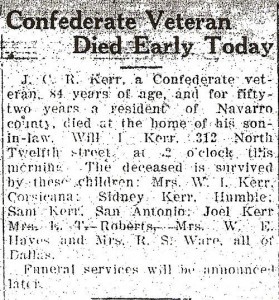
I think that’s the way it will work for us all. Don’t worry about the level of individual prominence you have achieved; worry about the individuals you have helped become better people. This is my final recommendation: Think about the metric by which your life will be judged, and make a resolution to live every day so that in the end, your life will be judged a success.”
As young philosophy students, we were challenged with the assignment of writing our own obituaries.
That will get you in touch with what matters.
In The Zone
Meet this transient world with neither grasping or fear, trust the unfolding of life, and you will attain true serenity.
— Bhagavad Gita
I love it when I’m in the zone.
It’s effortless.
You know what I’m talkin’ about.
- You’re working on a project and everything just falls into place.
- You’re writing and the words spill onto the page.
- You’re painting and it’s as if the canvas paints itself.
- You’re having fun; you lose track of time; and the hours become like seconds.
I experience it sometimes when I climb. The moves reveal themselves and suddenly I’ve topped out. Or sometimes when I’m running, it feels as if I’m being transported across the ground, like pure fluid motion.
It’s our natural state: Flow.
Why is it then that we fight it? Why is it that we make things difficult? Why is it that we choose to struggle? Why is it that we feel a need to wrestle everything to the ground?
As if we could really control any of it.
You know I’m not saying “Que sera, sera.”
I believe that we are called to pursue our dreams, to train hard, to take the risks, to push the edges, to grab the ring; to transform ourselves; to transform our world; to make our lives a masterpiece.
But, why can’t we believe that the Universe conspires for our success? Why can’t we trust that an Infinite benevolence wants for our good? Why can’t we rest in the natural order of things?
Life unfolds as it unfolds.
Struggle is optional.
“Sometimes I have to remember not to struggle,” said Ann breathlessly. We were running downhill after a long run up.
How true that is. We get caught in our struggles. And it’s so easy to stay stuck.
It’s so easy to stay in that state of struggle rather than to allow the magnificence that is.
“We are rather like whirlpools in the river of life, Charlotte Joko Beck writes. It’s when we try to dam up our whirlpools and cut them off from the larger flow, that we struggle. We suffer. We stress. We self-isolate. We cut ourselves off from one another. We cut ourselves off from the perfection that is the unfolding. We forget our true natures; we forget that we are part of the stream of life.
When we step into the flow, we allow for infinite possibility.
There’s a reason for that old round: Row, row, row your boat, gently down the stream.
It’s so much easier to be the river than to row against it.
Are You In The Mission Position?
Are you mission driven?
Or do you muddle?
The majority of folks drag themselves out the door, day after day, to their jobs, feeling empty, disappointed and depleted. Nearly 80% unhappy in their work.
Of course, in this economy, so many are grateful just to have some work.
But most folks want for something more as well.
Ultimately, as Maslow suggests, we want to feel fulfilled.
We look for purpose. We search for meaning. We want to matter.
At the end of our lives, none of us will wish we had spent more time in the office, billed more time, or sold more product. What will matter will be the experiences we have had, the lives we have touched, and the love we have shared.
But here’s the scoop. We get to choose how we will be.
Consider the old parable: A man went by a construction site and encountered a bricklayer working. The man asked him what he was doing. The bricklayer replied, “I’m laying bricks.” The man walked a few feet further and came upon a second bricklayer. He asked him the same question. The bricklayer answered, “I’m making a wall.” He then walked by another bricklayer and once again asked the same question. This worker replied, “I’m building a cathedral.”
The vision of our lives, our mission, is ours alone to form.
Abraham Lincoln had a vision of a nation freed of slavery, oppression and division.
Martin Luther King had a dream of equality and justice for all.
Nelson Mandela had a goal of unity and peace for the people of South Africa.
Ronald Regan had a vision of a world without a wall.
Mother Teresa labored to serve the poor and save the downtrodden.
The Dalai Lama’s purpose is to bring peace, gratitude and compassion to the world.
But “greatness” is not the precursor for vision. All of us have the capacity to have great vision. Saints aren’t born that way. Leaders learn to lead. And the visionaries, they’re the ones who, bit by bit, learn to see beyond themselves; who see the world not just as it is, but as how it could become. They have a grander vision of their lives, a bigger purpose. They’re the ones who think not just of their children, but of their children’s children for generations to come.
Folks who are mission driven bolt up out of bed every day, on fire, excited about what they are about to do. They’re focused not on the hours of their day, but on their impact in the world. 
Folks who are mission driven look beyond themselves. They have a servants heart. They add value. They give.
And even in the minutia of their days, they build cathedrals.
And you?
It Can’t Be Done
It’s not enough to be busy. The question is, what are we busy about?
— Henry David Thoreau
I speak on Intentional Leadership, Purposeful Living, Success Principals and Goal Achievement.
The questions I get most often are about time management. 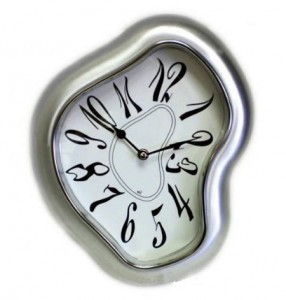
When polled, nearly 100% of my audiences say they feel as if their lives are “too busy.” Over 80% say that they drop into bed at the end of the day exhausted and depleted, without getting done anywhere near what they had hoped to accomplish in the day.
“How do you manage time?” they ask.
The answer: It can’t be done.
Time cannot be managed. Time just is.
The only thing that we can manage is ourselves.
But for the sake of discussion, I’ll share some thoughts this week on “time” management. Here are 7 “Secrets:”
- Get Up An Hour Earlier. If you look at all of the time-management recommendations across the decades, you’ll find this suggestion mentioned often. For years I disregarded it; it seemed too painful. But what I have discovered is that, of all the time management principals, this is the most powerful one of all. I adopted it when I was a single dad and was tired of the frantic rush to get the kids up, the lunches made and then make the mad dash out the door feeling breathless and exhausted before I had even digested the breakfast that I was still juggling on my lap. At first, I had to ease into the early hour backing up the alarm 15 minutes at a time over 4 or 5 months. But it became my most important hour of the day. All mine. No distractions. No demands. No noise. It allowed me to ease into the day more peacefully, more patiently, more mindfully. And now, long after the kids have gone off, I use the time to journal and meditate and read and write. It is my most productive time. I guard it jealously and wouldn’t trade it for the world.
- Turn Off The Tube. When I ask some of my coaching clients about their days, I discover that the TV goes on when they get home, and stays on until 11:00 pm when they drop into bed. You can pick up 4 or 5 hours every day of wonderfully productive time if you banish the television. That could be as much as 30 hours a week. That’s like a part-time job. Think of what you could accomplish with an extra 30 hours a week! You could take a course, launch a business, or write a book! You can get your news, weather and sports on your smart phone. There is nothing that the Kardashians will really add to the quality of your creative life, your marriage or your business. Get rid of the tube. (Between these first two “secrets,” you could “recover” 35 or 40 hours of time every week! That’s like having a whole other life!)
- Avoid The In-Box. I was astounded by a recent statistic that suggested that more than 80% of folks sleep with their cell phones. That’s whacked. Don’t do that. Beyond that seemingly self-evident principal, don’t check your email when you first get up in the morning. Your In-Box is nothing more than a convenient repository of other people’s agendas for your day. Even if you just peek, those demands and expectations of others will seep into your sub-conscious and throw you off your stride. Your thoughts and plans for the day deserve your first attention.
- Have A Plan. You cannot hit a target you cannot see. If you don’t have a plan for your day, someone else certainly will. If you don’t have a plan for your day, your day will be stolen from you and you can never get it back. Even if your day is a vacation day, you will lose it if you have not planned its boundaries carefully. Set aside some time in that first hour of your day, or better yet at the end of the day before, and map out your day. Decide on what is most important. Choose three things that matter most to you, the three things that, if you failed to accomplish those, you would feel as if your day had not been well spent. Do those three things first.
- Commit and Schedule. Something floating in your head in an idea. Something written down is real. Once you have decided on your plan, once you have decided on those most important things, actually write them into the schedule for your day. There is something powerful about the written word. When you’ve scheduled it, it feels like an obligation. Even though I have had a work-out schedule for years that seldom varies, I always put it on my calendar. It rarely gets displaced because its locked in. I’ve committed.
- Work In Block Time. Our lives are challenged by so many competing demands. And multi-tasking is a myth. It diminishes our productivity. Consider instead carving out chunks of time devoted to particular aspects of your day. Rather than checking email constantly on the fly, set aside a half hour in the morning and another at the end of the day to review and respond to emails. Set aside a half hour for your social media. Block out time twice a day to return your calls. And then schedule uninterrupted periods in your day, off the grid and away from your phone, when you can concentrate on your most important work. You will be amazed at how much more creative, efficient and productive you will become if you create these boundaries for yourself.
- Say No. Most of us are great at making To Do Lists. And then, because we’re stretched so thin, we never get To Do most of what’s on our list. Try making a Stop Doing List. There are lots of things we do that are not productive or efficient or joyful or worthwhile. Stop doing them. Busy is not badge of honor. Busy is a bad habit. You don’t have to say yes to every PTO request, every bake sale, every invitation to a board membership, every volunteer request, every civic organization, every request for your precious time. Figure out what you value most in life, what gives you the most joy. Concentrate there. Apply the Paretto Principal, the 80/20 Rule, ruthlessly. Get rid of the 20% of things that give you 80% of your headaches. Concentrate on the 20% of activities that give you 80% of your satisfaction. The person who has said yes the most by the time they’re dead doesn’t get a prize. Learn to say no.
I have begun to use the Rapid Planning Method developed by Tony Robbins. RPM is “a simple system of thinking that creates extraordinary results and an amazing level of personal fulfillment.” Robbins believes that “A life of fulfillment is one in which we put urgency in its place and remember that the ultimate target is to spend our lives doing the things we believe are most important to us.” I like the system because it focuses on outcomes, on the results that align most with the ultimate vision I have for my life.
But regardless of the method you use, the take-home message is this: Time can’t be managed. And the sands do run out.
DOWNLOAD your FREE BOOK!
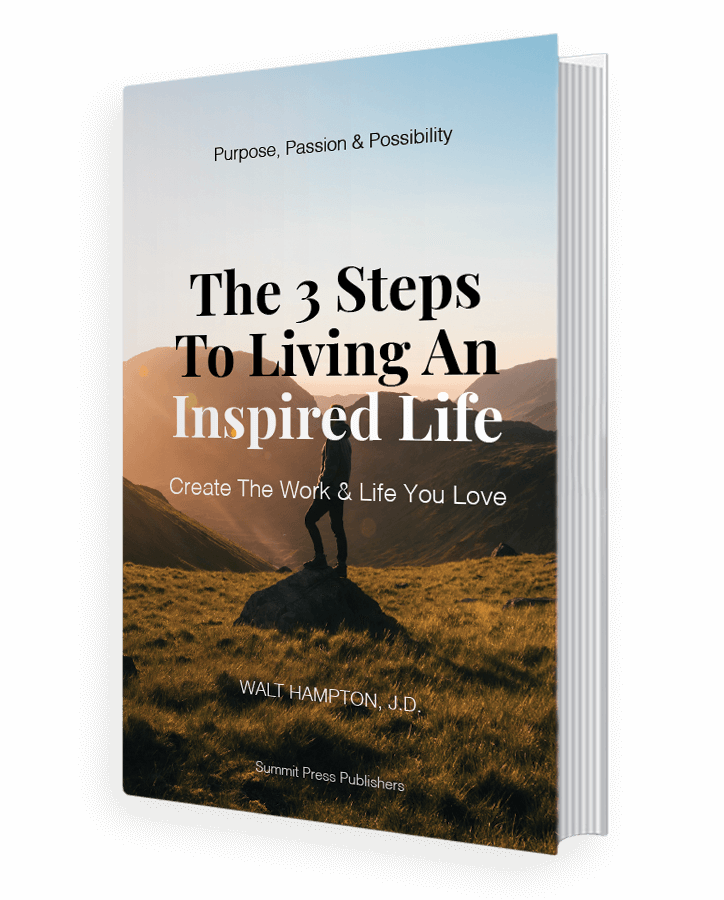
DOWNLOAD Your Free E-Book NOW! Click Below And Get Going!
Click below for your copy of Journeys!
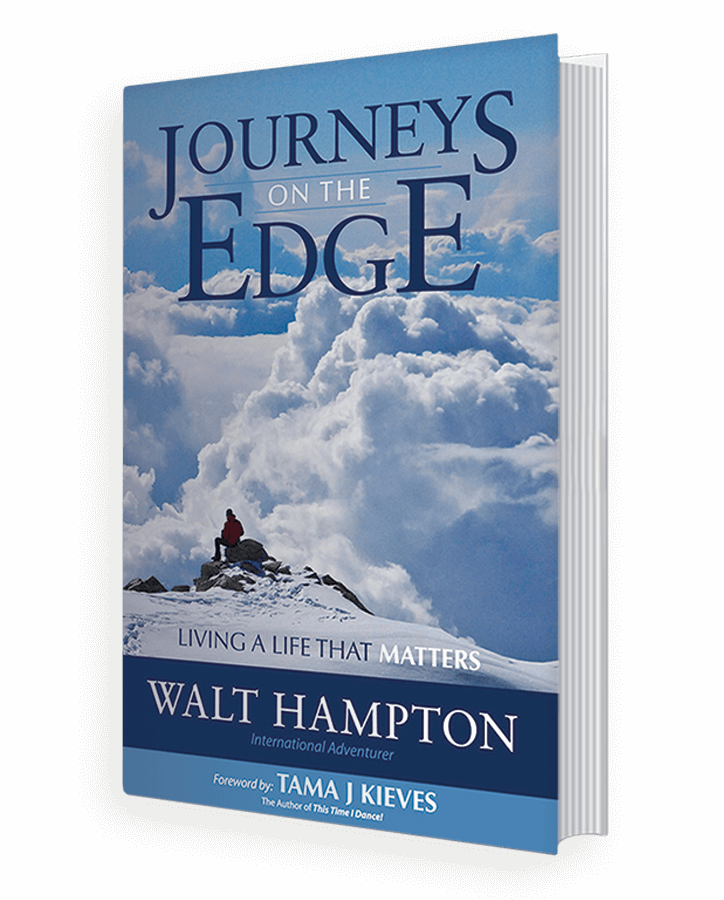
You’ll Get A Signed Copy!
Click on the button for your copy of my brand new book “The power principles of time mastery!”
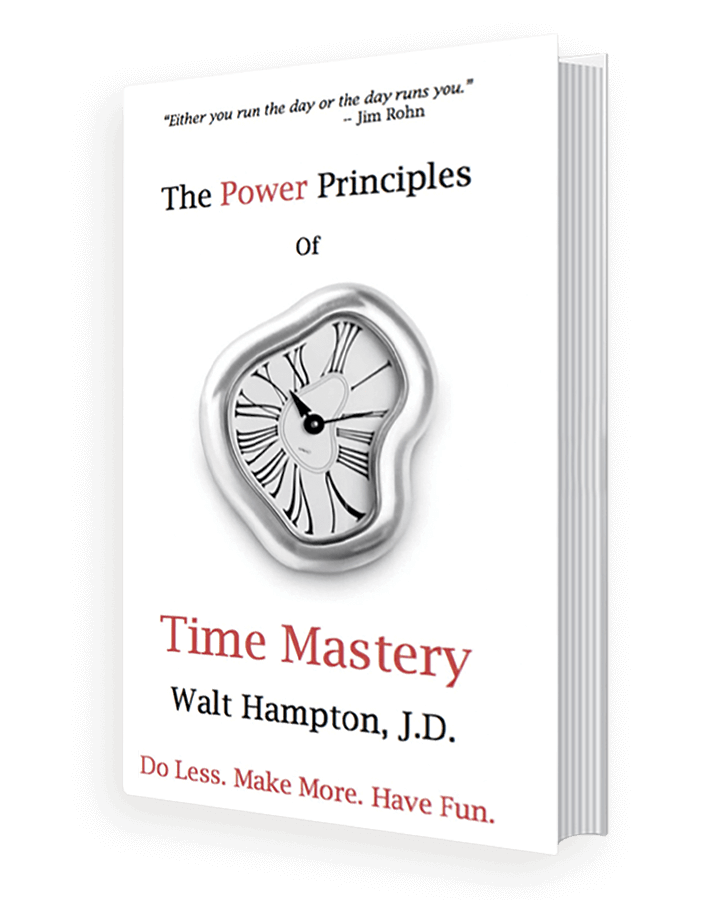
You’ll Get A Signed Copy!
Categories
Adventure
Finding The Way
Journeys
Leadership
Success
Ultra Training

